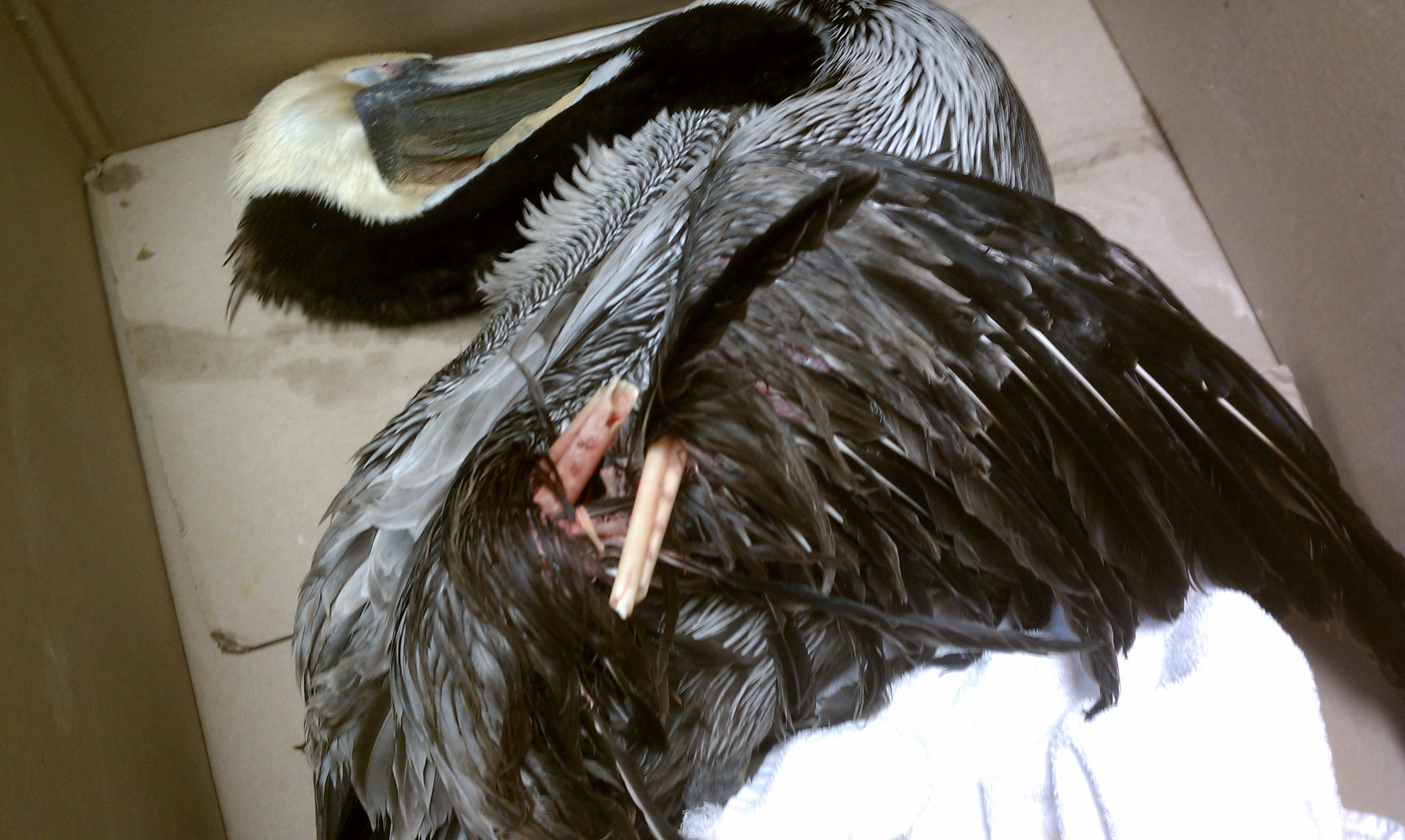Suspicious Pelican Injuries Raise Alarm
Five Birds Euthanized After Their Wings Were Snapped in Half

The Department of Fish and Game is investigating suspicious, fatal injuries sustained by five California brown pelicans in recent weeks. Each bird had one of its wings broken in half as if “someone just snapped them over their knee,” described Julia Parker, director of animal affairs at Wildlife Care Network.
The pelicans were found between January 10 and 19 by citizens walking along East Beach and around the harbor. Though the birds — which are federally protected — were discovered alive, veterinarians quickly decided they were beyond help and euthanized them. A person found guilty of intentionally harming a brown pelican is subject to a maximum fine of $200,000 and one year in prison.
According to Parker, Wildlife Care Network volunteers — responding to calls to their hotline — collected the hurt pelicans and transported them to CARE Hospital. Parker’s nonprofit rescues and rehabilitates wild animals throughout Santa Barbara County but sometimes coordinates with CARE, a 24-hour veterinary and surgical facility, on more serious cases. Representatives at both organizations agree there’s little chance the severe wing breaks occurred naturally.
The Department of Fish and Game was called after the second bird came through CARE’s doors. The state agency, said Parker, is sending an agent to Santa Barbara to look into the matter. A few years ago, she remembered, pelicans that clearly had been killed by a person were washing ashore in Santa Barbara and Ventura counties. Though Fish and Game launched an investigation, no suspect was ever identified or prosecuted.
Adult California brown pelicans typically weigh about eight pounds and measure a little more than four feet in length. Their wingspans range from six to eight feet, and they feed mainly on fish, amphibians, and crustaceans, diving into the ocean from as high as 60 feet in the air to snag prey. Though the pelican’s habitat includes marine environments from British Columbia, Canada, all the way to Nayarit, Mexico, they only breed on the Channel Islands, specifically Anacapa and Santa Barbara Islands.
Anyone with information on the recent incidents is encouraged to call the Department of Fish and Game at (800) 323-8477.


